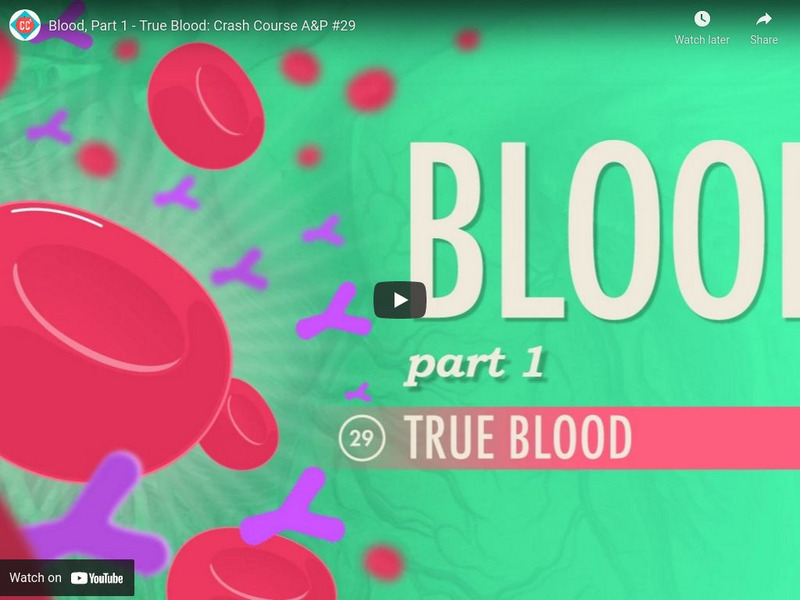Hi, what do you want to do?
Khan Academy
Khan Academy: Chemistry: States of Matter Follow Up
Ever wondered how lightning forms or what stars are composed of? These answers can be found in this video lecture about the fourth state of matter, plasma. This video lecture is a follow-up to a states of matter and bonding lectures....
Khan Academy
Khan Academy: Lab Values and Concentrations: What's Inside of Blood?
Watch how centrifuging your blood decomposes it, and find out what it's made up of. The instructor is a pediatric infectious disease physician. [11:09]
PBS
Pbs Learning Media: Crash Course Astronomy: The Sun
Phil takes us for a closer look at the two-octillion-ton star that rules our solar system. We look at the sun's core, plasma, magnetic fields, sunspots, solar flares, coronal mass ejections, and what all of that means for our planet....
PBS
Pbs Learning Media: Crash Course Anatomy and Physiology: Blood, Part 1: True Blood
Now that we've talked about your blood vessels, we're going to zoom in a little closer and talk about your blood itself. We'll start by outlining the basic components of blood, including erythrocytes, leukocytes, platelets, and plasma,...
PBS
Pbs Kids: Design Squad: Mesmer Tube
Find out what a Mesmer tube is and what happens to the gas inside it when charged with electricity. [0:50]
Crash Course
Crash Course Astronomy #10: The Sun
Take a closer look at the two-octillion ton star that rules the solar system. Also, look at the sun's core, plasma, magnetic fields, sunspots, solar flares, coronal mass ejections, and what all of that means for Earth.
Crash Course
Crash Course A&p #29: Blood, Part 1 True Blood
Now that we've talked about your blood vessels, we're going to zoom in a little closer and talk about your blood itself. We'll start by outlining the basic components of blood -- including erythrocytes, leukocytes, platelets, and plasma...
Sophia Learning
Sophia: Blood Components and Functions
This lesson will identify the functions of the three components that make up blood.
Khan Academy
Khan Academy: Calculate Your Own Osmolarity
Learn how to use three lab values (Sodium, glucose, and BUN) to approximate your plasma osmolarity. Rishi is a pediatric infectious disease physician and works at Khan Academy. [12:57]
Khan Academy
Khan Academy: States of Matter Follow Up
More information on plasma and hydrogen bonds. [8:45]
Khan Academy
Khan Academy: What Are Plasma Cell Dyscrasias?
This video explains the different blood cells and plasma cell dyscrasias or dysfunction. [7:53]
Khan Academy
Khan Academy: Why We Need a Lymphatic System
Welcome to the lymphatic system! Find out why we need it, and how it interacts with our blood vessels. [9:31]
Sophia Learning
Sophia: Blood: Components, Functions
This lesson will identify the functions of the three components that make up blood as well as identify the 4 blood types.
















